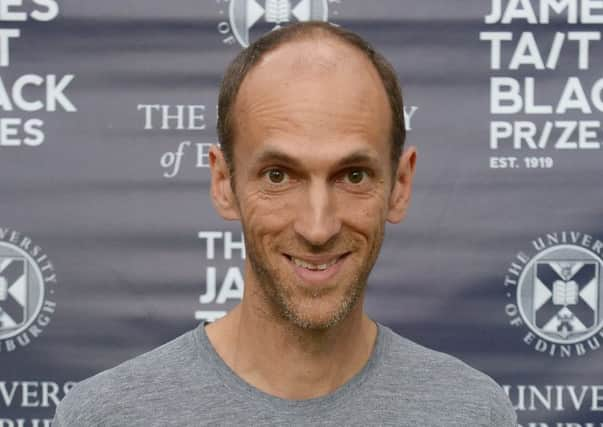Book review: A Weekend In New York, by Benjamin Markovits


I have not taken so long, or lingered so long, over a book since I finally grew up and appreciated the late style of Henry James – The Sacred Fount, since you ask – and this is a slow, very Jamesian novel. There is something delightful about seeing an author whose previous work you have admired striking out in new and unexpected directions.
We begin with Paul Essinger, a mid-ranking tennis professional, his wife Dana and their child Cal. (Cal is short for what? Caligula?) Paul has just been to his mentor’s funeral. Dana has already been divorced and for reasons both fuzzy and worrying, her ex-husband has allowed the extended family to stay in his flat in his absence in order to see Paul compete in the US Open.
Advertisement
Hide AdAnd so they descend – the pushy father (who is Jewish), the writer mother (who is German and writes about her family’s Nazi past), the older brother (who has written a legal academic paper justifying drone strikes), big sister (who has a secret) and little sister (who has a secret).
The title is almost sneakily modest, since over the weekend we get the entire family history. I am sure that some will compare it to the works of Saul Bellow and Philip Roth, in terms of its examination of Jewishness in America; others may even compare it to David Foster Wallace. There are not many novels about the semiotics of tennis.
But it is James I kept coming back to, because the novel telescopes two different kinds of narration. On the one hand it has an omniscient narrator, who can tell us when someone in the future will die and scry into the heads of each and every one of the characters. On the other, it uses a kind of close third person narration, where we are, temporarily, in the head of the character. That is what slows the novel to its own pace.
Take this for example: “She meant this in a general way, that he seemed the least likely to judge her, but afterwards Jean wondered whether Dana may have taken it the wrong way… Maybe she did mean something along those lines, who knows. Something else to beat herself up about.” The ricochet between perspectives is astonishing, but at the same time the embedded ambiguity – that strange “who knows” – is so skilfully managed.
It is also similar to James in terms of the relationship between Europe, America and, fundamentally, class. The novel is all about “these vague protocols and semi-relationships”. The mother, Liesel, thinks late in the novel that “Americans are very attached to the idea of purity, there are no half-measures, you are either a smoker or not, everything is a potential source of identification”.
At one crucial moment two of the siblings are locking horns. “I just don’t understand why everything has to be a fight”. The retort is “Because everything’s a fight”. You will have to read the novel to appreciate the layers of irony and strange empathy in that exchange, as we have spent so much time flitting in and out of them by them.
Advertisement
Hide AdStudied contradiction is almost the novel’s signature style. The omniscient narrator is not always so omniscient; as in “Susie felt a pang of something, conscience or sadness or love, she couldn’t tell”.
But the grace of the style is mirrored in something more important: the moral nature of the book.
Advertisement
Hide AdOver the course of it, we learn about the characters, we start to dislike them for their variously selfish, prideful, antagonistic ways, we learn to forgive them as we learn why they are the way they are and finally we feel a kind of horrible redemption. They are, in the end, as human as we are. As one character puts it – with a beautifully literary repetition – “Okay, feel what you feel but this is the kind of feeling you have to put out of your head. Unless it serves as a useful distraction.”
This is a novel where every detail is determined. It is not an easy read, but it is a rewarding one. It would be a failure on my part to reveal the ending(s) but they are both perfectly satisfying and bravely open.
Were I a betting man, I would put money on this making the longlist for the Man Booker Prize this year. Even if it does not, I will remember it for a long, long time.
Book review: A Weekend In New York, by Benjamin Markovits, Faber & Faber, £14.99